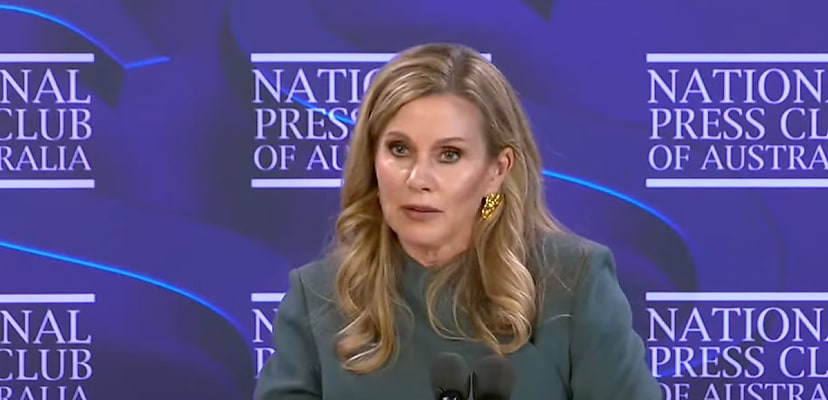The chairman of the United States House of Representatives Committee on the Judiciary, Republican Jim Jordan, has called on Australia’s eSafety Commissioner to appear in a recorded interview before the committee as part of its efforts to “develop effective legislation” to protect free speech in the US.
“To develop effective legislation, such as new statutes to ensure that foreign laws cannot silence Americans in the United States or severely burden American companies, the committee must first understand the nature of the harms imposed by these foreign laws,” Jordan said in an email addressed to Inman Grant.
“As the Australian eSafety Commissioner, you are the official primarily responsible for enforcing Australia’s Online Safety Act (OSA), which imposes obligations on American companies and threatens speech of American citizens.”
The bulk of Jordan’s email invitation follows a similar theme, regarding the ongoing harms to the “free speech rights of those outside of Australia’s jurisdiction”.
“For example, in 2024, your commission sought to compel X to remove content globally, arguing that its geo-blocking of the content was insufficient because Australians could use VPNs to access the content,” Jordan said.
Jordan, on behalf of the Judiciary Committee, said that Inman Grant had “colluded with pro-censorship entities in the United States to facilitate Australia’s, and other, global censorship regimes”.
In particular, Jordan called out Inman Grant’s work with Stanford University’s Social Media Lab and the commissioner’s attendance and presentation at a “non-public event” at the university.
“The stated purpose of this event was to ‘bring … together policymakers, academics, and experienced Silicon Valley experts to discuss the state of compliance and enforcement of existing regulations related to online trust and safety’,” Jordan said.
“Put plainly, the roundtable sought to facilitate cooperation with global censorship by bringing together foreign officials who have directly targeted American speech and represent a serious threat to the First Amendment.”
Jordan referred to Inman Grant as a “primary enforcer of Australia’s [Online Safety Act] and noted zealot for global takedowns”, before “respectfully” requesting the commissioner’s cooperation in taking part in a “transcribed interview” with the committee.
Despite some Australian media headlines characterising the invitation as Inman Grant being “hauled before US Congress”, Inman Grant is considering the invitation.
“The eSafety Commissioner is considering whether to agree to the request in the context of eSafety’s current priorities,” an eSafety spokesperson told Cyber Daily.
“It is important to remember why the eSafety Commissioner was established in 2015 as an independent regulator – to protect Australians, especially children, from a range of online harms, including sexual abuse and exploitation, deepfake image-based abuse, extreme violence and terrorist propaganda, cyber bullying and exposure to age-inappropriate material, including pornography, self-harm and suicide promotion.”
The spokesperson said the commissioner only responds to reports of online abuse from the Australian public when the platforms themselves fail to act. “... We do not proactively monitor the Internet,” the spokesperson said.
“Australia’s eSafety Commissioner regularly speaks to partners in law enforcement, fellow regulators, academics, NGOs, and lawmakers around the world, but it is also important to stress that eSafety is responsible for enforcing the laws of Australia, as enacted by the Australian Parliament. The commissioner is accountable to Australia’s Minister for Communications and the Australian Parliament.”
eSafety said that any company that wishes to offer services or content to Australians must be aware of and comply with Australian laws, and take steps to comply with local laws and directives.
“In the case of removal notices, eSafety considers geoblocking to be a reasonable step,” the spokesperson said.
“This was most recently demonstrated through our acceptance of geoblocking in the Charlie Kirk, Zarutska, and Nagamallaiah murders, where content is illegal to display to Australians, but not to others.”
“There’s nothing eSafety is doing that prevents American companies from displaying whatever they want to Americans.
“Freedom of political communication is a basic democratic principle in Australia. Australia’s Parliament, like other jurisdictions, has determined certain categories of material – such as the depiction of child sexual abuse or the promotion of terrorism – fall outside that implied freedom.”
David Hollingworth
David Hollingworth has been writing about technology for over 20 years, and has worked for a range of print and online titles in his career. He is enjoying getting to grips with cyber security, especially when it lets him talk about Lego.


